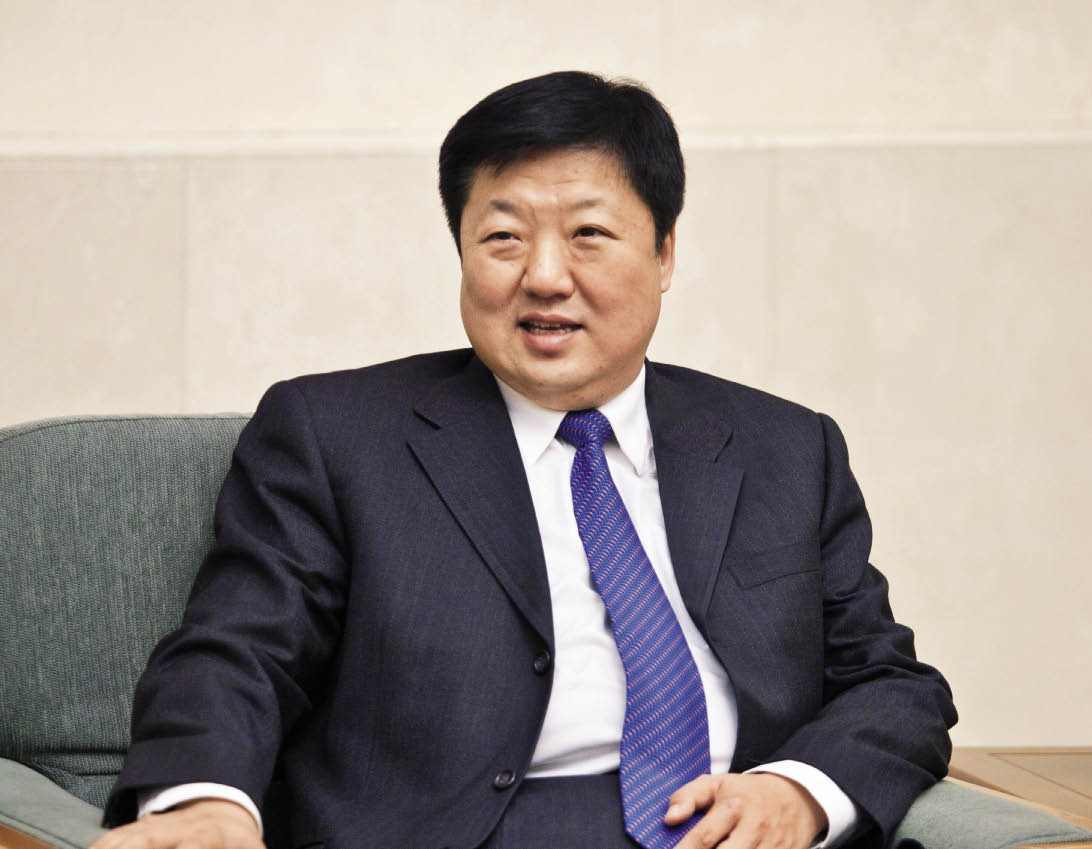A Festival of Ice Adds Steam to Harbin’s Development
– An Exclusive Interview with Song Xibin, Deputy Secretary of the CPC Harbin Municipal Committee and Mayor of Harbin
By WEN XINGYU, ZHU LIDAN & QIN XIAOYAN

ON January 5, 2013, the 29th China Harbin International Ice and Snow Festival opened in Harbin. It was an occasion for celebration for local residents as well as tourists from China and abroad. The crowds gathered to admire the icy artistic wonders on display and revel in the festivities.
Ji Bingxuan, secretary of the CPC Heilongjiang Provincial Committee and director of the Standing Committee of Heilongjiang Provincial People’s Congress, attended the opening ceremony. Sun Yao, deputy governor of the province, delivered a keynote speech, after which Harbin mayor Song Xibin declared the annual festival open.
Honorable guests at the opening ceremony included Lars Backstrom, Finnish Ambassador to China; Sean B. Stein, U.S. Consul General in Shenyang; Kim Kwanghun, Consul General in Shenyang of the Democratic People’s Republic of Korea; Isabelle Miscot, French Consul General in Shenyang; Jens-Peter Voss, German Consul General in Shenyang; and Yu Zaiqing, vice president of the Chinese Olympic Committee and member of the International Olympic Committee.
At the opening ceremony Mayor Song Xibin said that the Harbin International Ice and Snow Festival, after 28 years of experience and development, had grown in scale, artistic vision and influence. It now goes beyond a mere ice and snow art show to encompass a broad range of activities, including celebrations of ice and snow culture, winter sports, business and trade meets and other activities for participants. As host of one of the four major ice and snow festivals in the world, the city of Harbin nowadays has the reputation as a vibrant, international hub.
The 14th Ice and Snow World Festival officially opened at 7:30 that evening, raising the curtain on outdoor and indoor artistic performances. Soon afterwards fireworks up and down the frozen Song- hua River, as well as in the festival’s official grounds, burst out in colorful splendor above revelers’ heads. There was much clapping and cheering.
Themed “An Icy City, A Happy Land,” the festival included over 100 activities under the five themes of ice and snow culture, ice and snow art, ice and snow tourism, ice and snow sports, and ice and snow trade. Domestic and international tourists alike took part in all activities.
After the opening ceremony, Mayor Song sat down with China Today to relate some of his experiences at the helm of Harbin’s immensely successful festival.
China Today: What do you regard as Harbin’s unique traits?
Mayor Song: Harbin has a rich cultural background. Its architecture and city planning are a blend of Chinese and Western aesthetic traditions. Just take a look around: its urban landscape is unique, and European influence is obvious.
Eminent 20th century Chinese philosopher, essayist and diplomat Dr. Hu Shi defined Harbin as “the juncture of Chinese and Western cultures.” Along Central Avenue stand over 470 buildings in the Baroque and Byzantine architectural styles, which have earned the city UN recognition as “Museum of World Architecture.” Harbin is also known as “Moscow in the Orient” and the “Paris of the East.” The city has hosted the “Harbin Summer Concert” on 31 occasions, and UNESCO named it “China’s City of Music” in 2010.

